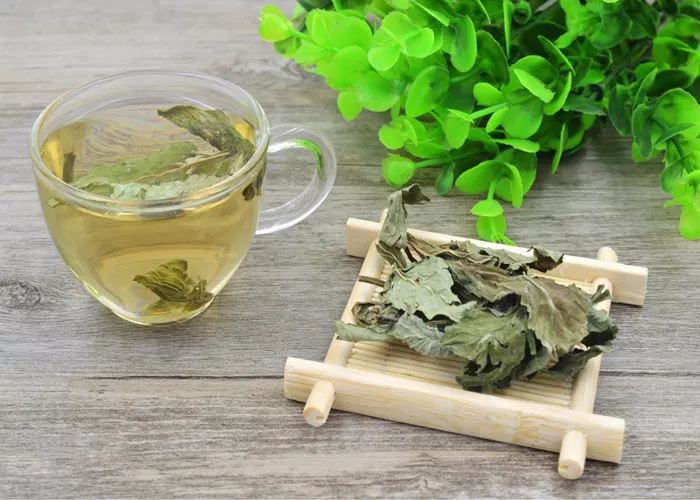Weight loss tea, often marketed as a natural and convenient way to shed excess pounds, has become increasingly popular. From green tea to herbal blends promising to boost metabolism and suppress appetite, these teas are often seen as a less intensive alternative to traditional dieting and exercise. But does weight loss tea really work? This article aims to provide a comprehensive analysis of weight loss teas, exploring their ingredients, mechanisms of action, potential benefits, and the science behind their claims.
What is Weight Loss Tea?
Weight loss tea is a type of beverage that typically contains a blend of herbs, plant extracts, and sometimes caffeine, all claimed to aid in weight loss. These teas can vary widely in their ingredients and formulations, with some focusing on appetite suppression, while others aim to increase metabolism or improve digestion.
Ingredients and Mechanisms of Action
Caffeine and Other Stimulants
One of the most common ingredients in weight loss teas is caffeine, a natural stimulant found in tea leaves, coffee beans, and other plants. Caffeine works by increasing adrenaline levels, which in turn can boost metabolism and fat burning temporarily. However, the effect is usually small and may not lead to significant long-term weight loss unless combined with other lifestyle changes.
Catechins and Polyphenols
Green tea, in particular, is rich in catechins, especially epigallocatechin gallate (EGCG), which have been shown to have antioxidant and fat-burning properties. Catechins can increase fat oxidation and improve insulin sensitivity, potentially aiding in weight management. Polyphenols, another type of plant compound, may also contribute to weight loss by reducing inflammation and improving gut health.
Herbal Extracts
Many weight loss teas contain a variety of herbal extracts, such as garcinia cambogia, bitter orange, and ginger. Garcinia cambogia is believed to suppress appetite and block fat production, while bitter orange contains synephrine, a stimulant similar to caffeine. Ginger may aid in digestion and reduce inflammation.
Potential Benefits
Temporary Boost in Metabolism: Caffeine and other stimulants in weight loss teas can temporarily increase metabolism, leading to a slight increase in calorie burning. This effect is usually modest and may not be sufficient for significant weight loss unless paired with diet and exercise.
Appetite Suppression: Some ingredients, like garcinia cambogia, may help suppress appetite, making it easier to stick to a calorie-controlled diet. However, the effectiveness of these ingredients in reducing hunger and food intake varies widely among individuals.
Improved Digestion and Gut Health: Herbal extracts like ginger and peppermint may improve digestion and reduce bloating, making individuals feel lighter and more comfortable. A healthy gut microbiome is also crucial for overall health and may indirectly contribute to weight management.
Drawbacks and Concerns
Limited Efficacy: While weight loss teas may offer some temporary benefits, their effectiveness in promoting long-term weight loss is limited. Most studies on tea ingredients have shown only modest effects, and many are based on short-term interventions.
Side Effects: Some ingredients in weight loss teas can cause side effects, such as nausea, headaches, insomnia, and increased heart rate. For example, bitter orange contains synephrine, which can be stimulating and may not be suitable for everyone, especially those with high blood pressure or heart conditions.
Potential for Misuse: The popularity of weight loss teas can lead to misuse, such as relying solely on teas for weight loss without making other healthy lifestyle changes. This approach is unlikely to be successful and may even be harmful.
Scientific Evidence
Meta-Analyses and Systematic Reviews: Several meta-analyses and systematic reviews have been conducted to assess the effectiveness of tea ingredients for weight loss. While some studies suggest that green tea extract may have a modest effect on weight loss, others find the evidence to be inconclusive or only applicable to specific populations.
Clinical Trials: Clinical trials on weight loss teas have shown varied results. Some studies report small but statistically significant weight loss in participants consuming tea extracts, while others find no significant differences compared to control groups. It’s important to note that many trials are small, short-term, and may not be generalizable to the broader population.
Real-Life Experiences and Testimonials
While anecdotal evidence and testimonials can be compelling, they should be interpreted with caution. Individuals’ experiences with weight loss teas can vary widely due to differences in diet, lifestyle, and genetics. Some may experience significant weight loss, while others may see no results or even negative effects.
Practical Tips for Using Weight Loss Tea
Combine with Diet and Exercise: For optimal results, weight loss teas should be used as an adjunct to a healthy diet and regular exercise. Teas alone are unlikely to lead to significant weight loss unless paired with other lifestyle changes.
Monitor Side Effects: Be aware of potential side effects and monitor your body’s response to weight loss teas. If you experience any adverse effects, discontinue use and consult a healthcare professional.
Choose Quality Products: Look for products that are certified organic, free from additives and preservatives, and have been tested for purity and potency. Avoid teas that contain high levels of caffeine or other stimulants if you’re sensitive to these ingredients.
Conclusion
Weight loss teas can be a useful addition to a healthy weight loss plan, but they should not be seen as a magic bullet. While some ingredients may offer modest benefits for weight loss, their effectiveness is limited, and side effects are possible. For sustainable weight loss, focus on a balanced diet, regular exercise, and healthy lifestyle habits. If you’re considering using weight loss teas, do so in moderation, monitor your body’s response, and consider consulting a healthcare professional for personalized advice.
In summary, weight loss teas can provide temporary boosts in metabolism and appetite suppression, but their long-term effectiveness is limited. While some ingredients may have beneficial properties, the key to successful weight loss lies in a comprehensive approach that includes diet, exercise, and healthy lifestyle habits. By understanding the science behind weight loss teas and their potential benefits and drawbacks, you can make informed decisions about whether they’re right for you.
Related topic:


